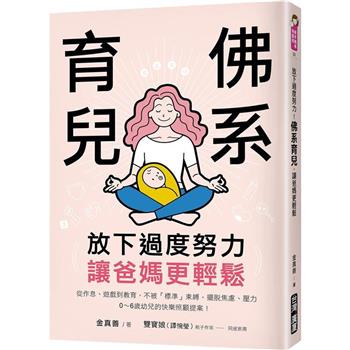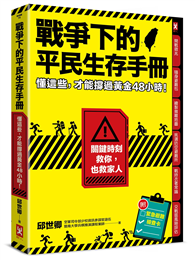PREFACE
This volume will try to tell the story of what has happened in China during the last hundred years, from the cession of Hong Kong in 1842 to the blitzkrieg of Pearl Harbor in 1941, with emphasis on the latter half of that period. A century is a long time, but of China’s more than four thousand years of history it is but a small fraction, less than one fortieth. Yet the change China has gone through in that brief span is unprecedented in her long life. And now more rapid changes on a still larger scale are about to take place.
Since the first exchange of gunfire at Marco Polo Bridge the attention of the world has been drawn to China. The heroic resistance at Shanghai, Taierchuan, and Changsha has evoked sympathy and admiration in the hearts of millions of China’s friends throughout the world. The part China is destined to play in the affairs of nations will be of great interest to the world in the period before us. She has been appraised somewhat too high by her well-wishers and somewhat too low by those who do not know her. In either case the interest is there and the fact remains that she has fought almost singlehanded, for eight long, suffering years, a strong enemy sustained by religious-patriotic fanaticism, superior weapons, and efficient organization.
Neither by her friends nor by her own efforts could China be lifted overnight to the level of modern industrialized democracies; nor could she be exterminated by her enemies in a few years or even a few centuries. In the time ahead of us she will become a focus of attention for the world, since future peace—at least one of the major factors of peace—will depend much on a prosperous and strong China.
How is this great country to be made prosperous and strong? The problem must be solved by herself alone. Effective co-operation of friendly Powers will accelerate her success, but she alone must bear the responsibility of making herself worthy to be a leading partner of peace in the world.
China is a nation neither of angels nor of incompetents; she is a nation of common mortals with feelings, ideas, love and hate, hopes and despair, beauty and ugliness, accomplishments and failings, virtues and vices. It is hoped that the world will not expect from her people more than it does from other ordinary human beings. She has no panacea for all her troubles, nor any magic box by aid of which she can transform herself at will into what she desires to be. Whatever success she has achieved has been paid for with sweat in time of peace and with blood in time of war.
To the question “What is the trouble with China?” the author can only answer that there are a number of troubles waiting for solution in that vast country of teeming millions, more than she will be able to solve in any limited span of time. Some were created by enemies who tried to conquer her, others by herself during the time of metamorphosis; still others have been imposed on her by force of circumstance or as legacies of the past. Some of the more difficult problems have been solved or partially solved during recent years before the war; many others remain to be dealt with in due course of time.
Looking back over the last fifty years which he has personally experienced— over the past hundred years with which he is familiar, and even farther, down the long reaches of China’s history which he has been taught—the author has traced to the best of his knowledge the threads of a number of problems, some lying deep in her past, others arising from the rapid changes which caught her unprepared. He has tried to tell, within the limits of discretion, what has happened in China, especially during the last fifty years. For those friends who desire to co-operate with her, with a view to solving some of the difficult problems of a more enduring peace, this moderate volume may be helpful in giving an insight into the life and problems of the Chinese people. For co-operation cannot possibly proceed without mutual understanding. To understand what is actually the background—the mental, emotional, and moral constitution—of the country, is essential for a lasting co-operation.
With the above ideas in mind the author has described ordinary happenings in some detail so as to acquaint the reader in some measure of intimacy with the mental, emotional, and moral make-up of the Chinese people as revealed through their life in peace and war. As small things often reflect major developments in a country, it is hoped that some sense of the meaning of greater events may be gathered from these apparent trifles of daily life.
Chiang Mon-lin
Chongqing, 1943
序
《西潮》裏所談的是中國過去100 年間所發生的故事,從1842 年香港割讓起到1941 年珍珠港事變止,尤其着重後50 年間的事。一個世紀是相當長的一段時間,但是在4,000 多年的中國歷史裏,卻只是短暫的一個片段,幾乎不到四十分之一。不過中國在這段短短的時間內所經歷的變遷,在她悠久的生命史上卻是空前的,而且更大規模的變化還正在醞釀中。
自從蘆溝橋的槍聲劃破長空,中國的局勢已經引起全世界人士的注意。國軍在淞滬、台兒莊以及長沙的英勇戰績,已經贏得全球中國友人的同情與欽敬。在未來的歲月中,中國勢將在國際舞台上擔任眾所矚目的角色。這些年來,愛護中國的人士未免把她估計得太高,不了解中國的人士則又把她估計得太低。無論是估計過高或過低,對中國的關切是一致的;而她幾乎孤立無援地苦戰八年之久,也是無可否認的事實。在這漫長痛苦的八年中,她與具有優越的武器、嚴密的組織以及宗教的愛國狂熱的強敵相週旋,愈戰愈奮,始終不屈。
不論是本身的努力,或者友邦的援助,都不能使中國在旦夕之間達到現代工業化民主國家的水準;但是她的敵人也不可能在幾年之內,甚至幾百年之內,滅亡她。在未來的歲月中,中國將是舉世人士注意力的焦點,因為未來的和平與中國之能否臻於富強是息息相關的。
中國怎樣才能臻於富強呢?這個問題必須由她自己單獨來解決。友邦的密切合作固然可以加速她的成功,但是她必須獨立擔負起使自己成為世界和平支柱的責任。
中國既不是一個天神般萬能的國家,也不是一個低能的毫無作為的國家。她是一羣有感情、有思想的凡人結合而成的國家。他們有愛、有恨;有美、有醜;有善、有惡;有成就、有失敗;有時充滿希望,有時陷於絕望。他們只是一羣平平常常的人,世界人士不能對他們有分外的要求和期望。中國沒有解決一切困難的萬應靈丹,也沒有隨心所欲脫胎換骨的魔術。如果她已經有所成就的話,那也是平時以汗,戰時以血換來的。
如果有人問:「中國的問題究竟在哪裏?」作者只能答覆:中國正有無數的問題等待4 億5,000 萬人民去解決,而且不是任何短時間內所能解決。有些問題是企圖征服她的敵人造成的,有些則是蛻變過程中她本身所製造的;另有一些問題是客觀環境引起的,也有一些問題則是歷史的包袱,有一些比較困難的問題已經在戰前幾年內解決,或者局部解決,更有許多問題則尚待分別緩急,逐一解決。
回顧作者身經目睹過去的50 年,以及作者所熟悉過去的100 年,甚至追溯到作者所研習過的中國的悠久歷史,作者已經就其所知探求出若干問題的線索,有些問題深深植根於過去,有些則由急劇的變化所引起。作者已經力求平直客觀地陳述中國過去所發生的變遷,尤其是過去50 年內所發生的事情。對於願意與中國合作,共同解決妨礙持久和平的若干問題的國際友人,本書或可提供一點資料,幫助他們了解中國人民的生活與問題。合作是勉強不來的,必須彼此相互了解,然後才能合作。欲謀持久的合作,必須先對一國的真實背景有所了解,包括心理、情感以及道德等各方面。
因此,作者對於日常瑣事也往往不厭其詳地加以描寫,希望藉此使讀者對中國人民在戰時與平時所反映的心理、情感和道德等,能有比較親切的認識,日常瑣事往往可以反映一個國家的重大變遷,希望讀者多少能從作者所記述的身邊瑣事中,發現重大史實的意義。
蔣夢麟
1943 年於重慶
推薦序
這是一本充滿了智慧的書。這裏面所包含晶瑩的智慧,不只是從學問的研究得來,更是從生活的體驗得來。
讀這本書好像是泛舟在時間的洪流之中,一重一重世間的層巒疊嶂、激湍奔濤,都在我們民族和個人的生命中經過。而且這段時間乃是歷史上一個極不平凡時代的新序幕,舉凡人類中各個集團的衝突,乃至東西文化的蕩磨,都集中在這風雲際會。
時代的轉變愈快,被人們忽略的史實愈多。若當時的人不予以記載,則後起的人更無從知道,無從了解。這種忽略和遺忘都是人類很大的損失,因為在不斷的歷史的過程中間,以往的經驗,正是後來的教訓。
了解這種意義,才能認識蔣夢麟先生這本書所蘊藏的價值。他生長在這極不平凡時代已經過了70 年。他從中國學究的私塾到西洋自由的學府;從古老的農村社會到近代的都市文明;從身經滿清專制的皇朝到接受革命思想的洗禮;他多年生活在廣大的外國人羣裏面;更不斷生活在廣大中國人羣尤其是知識青年羣眾裏面。他置身於中西文化思想交流的漩渦,同時也看遍了覆雨翻雲、滄海桑田的世局。經過了七十年華,正是他智慧結晶的時候,到此時而寫他富有哲學內涵和人生風趣的回憶,其所反映的決不是他的一生,而是他一生所經歷的時代。
《西潮》這本書裏面每一片段都含有對於社會和人生的透視。古人所謂「小中見大」正可於此中求之。其將東西文化相提並論之處,尤其可以發人深省。著者好舉平凡的故事,間雜以微妙而不傷人的諷刺,真使我們感受到一股敦厚淳樸的風味。這種風味在當今是不容易嚐到的了。至於其中的妙語妙喻,不斷的流露,正像珍珠泉的泉水,有如粒粒的明珠,連串的噴了上來。
這本書最難達到的境界,就是著者講這個極不平凡時代的事實,而以極平易近人的口吻寫出來,這正像孟鄰先生做人處世的態度。若不是具備高度文化的修養,真是望塵莫及的。我何敢序孟鄰先生的大著,只能引王荊公兩句詩以形容他的寫作和生平。詩云:「看似平常最奇絕,成如容易卻艱難。」
羅家倫
1959 年12 月6 日

 共
共 










